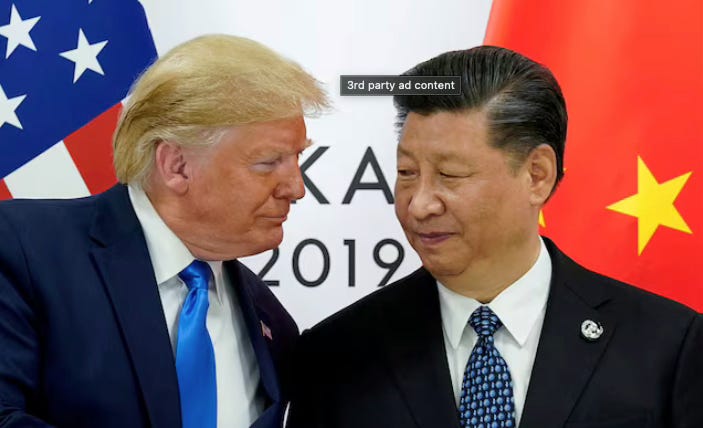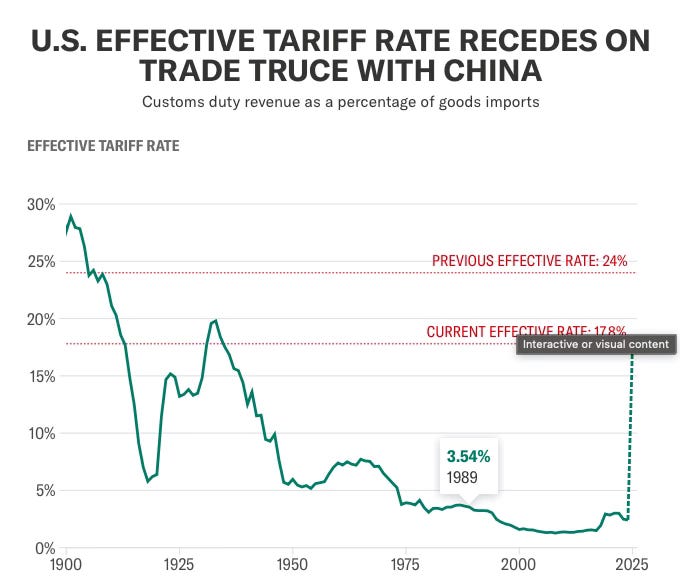Trump, Xi Agree to Renew High-Level Trade Talks
Trump invites Xi to the White House for a future visit, but analysts say prospects are slim for real improvement in relations.
US President Donald Trump and Chinese President Xi Jinping agreed in a phone call on 5 June to resume high-level trade negotiations following a tense week of escalating rhetoric and mutual recriminations.
The phone call was the first direct conversation between Trump and Xi since Trump returned to the White House in January. It signals a temporary thaw in what has become a deeply fraught relationship between the world’s two largest economies.
The 90-minute call, reported by Chinese state media outlet Xinhua, produced no joint statement but was described by both sides as constructive. Xi urged the US to treat China ‘in the spirit of equality’ and ‘remove the negative measures’ it has taken, including export bans, student visa restrictions, and steep tariffs. Xi framed the dispute as part of broader US-China tensions, warning against sliding into ‘confrontation and even conflict’ over Taiwan.

Speaking later to reporters at the White House, Trump offered a more upbeat tone. ‘We had a very good talk, and we’ve straightened out any complexity,’ he said.
‘We have a deal with China, as you know… we’re going to just make sure that everybody understands what the deal is,’ the president said, possibly overstating the level of concensus between the two sides.
Treasury Secretary Bessent, Commerce Secretary Howard Lutnick, and Trade Representative Jamieson Greer will lead a US delegation in the next round of negotiations with China, Trump said. Bessent and Greer had met with Chinese counterparts in Geneva in mid-May. The two sides agreed then on a 90-day truce in Trump’s trade war and a suspension in retaliatory tariffs.
Rare Earths Blockade
The resumption of talks follows what appeared to be a deterioration in relations in recent days. On 4 June, Trump had lashed out on social media, calling Xi ‘extremely hard to make a deal with’ after China appeared to walk back a pledge to lift export restrictions on rare earth minerals essential to US industries including defense, electronics, automobiles and green energy.
Chinese officials responded by blaming the US for stoking tensions with new export controls on artificial intelligence chips, visa restrictions targeting Chinese students, and a steep rise in tariffs on Chinese steel and aluminum.
China insists that its rare earth restrictions apply globally, denying any targeted retaliation against the US. ‘The Chinese are reluctant to give up their leverage so easily,’ Yun Sun, director of the China program at the Stimson Center told the New York Times. ‘They want to wait and see how things go.’
Diplomatic Invitations, Strategic Stakes
Despite the impasse, both leaders extended diplomatic gestures during the call. Trump said he had invited Xi to visit Washington, and that Xi had reciprocated with an invitation for the Trumps to visit China. ‘We both accepted,’ Trump said.
Still, experts warned that deep structural disagreements remain. ‘The likelihood of further misunderstandings, coupled with a fundamental lack of trust, will present enormous challenges,’ Wendy Cutler, vice president at the Asia Society Policy Institute and a former US trade negotiator, told the Times.
A new deadline looms as the truce expires on July 8. Prior to the Xi-Trump call both sides had accused the other of violating the Geneva understanding.
The decision to resume talks offers opportunity but no guarantees. Market reaction was cautiously optimistic, with major indexes rising modestly in early trading. Still, Hong Kong financial analyst Yan Baogang warns: ‘The negotiations will remain deadlocked, and it will be difficult to reach an agreement before the July 8 deadline,’ according to Radio Free Asia.




